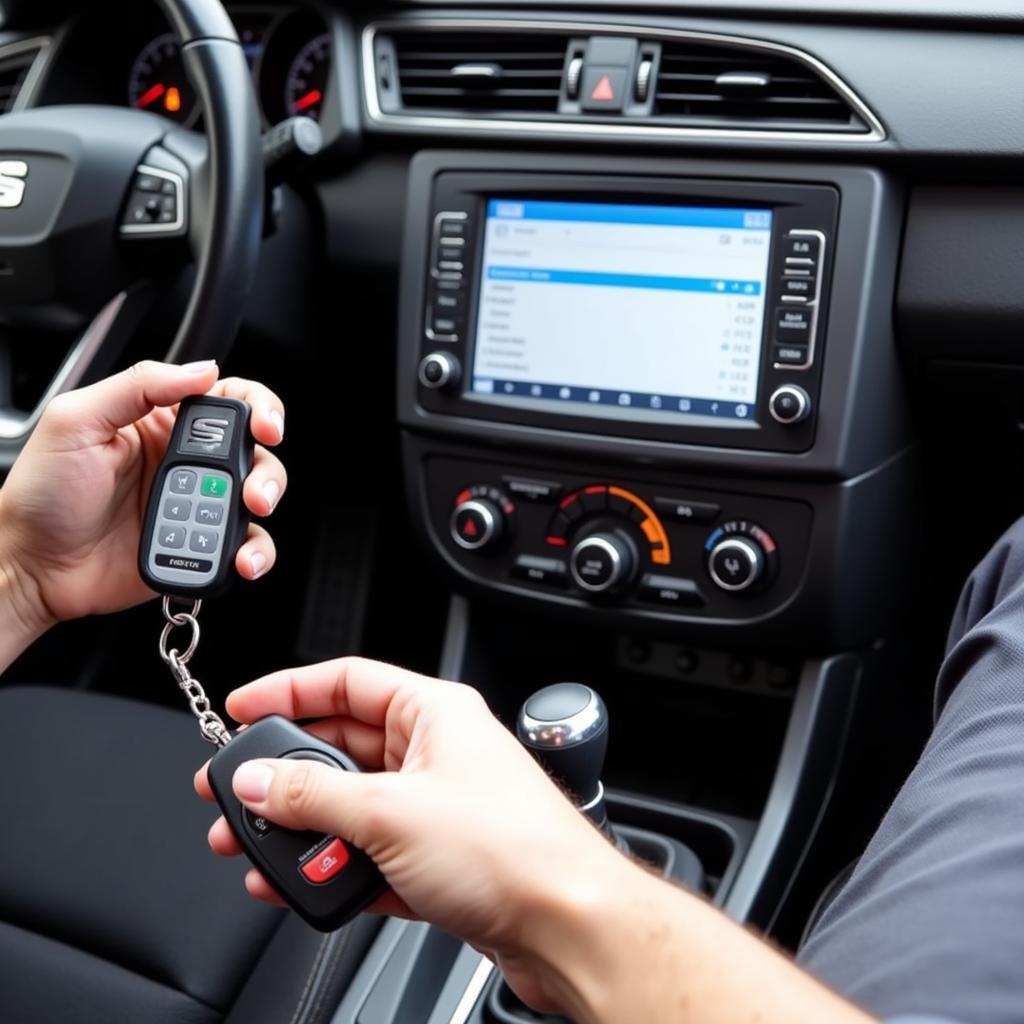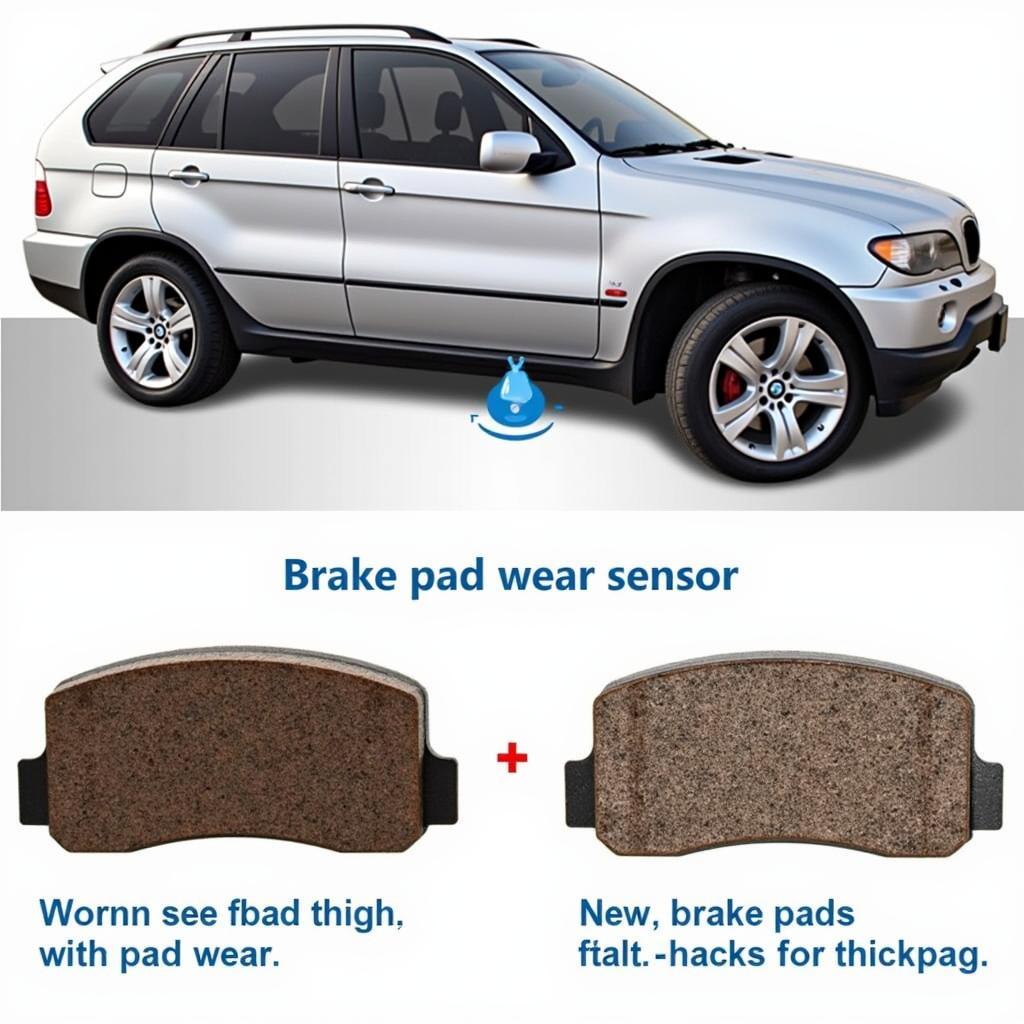Experiencing dimming headlights, sluggish starts, or a perpetually illuminated battery light on your dashboard? These are telltale signs of a failing car battery or alternator. But how can you tell which one is the culprit? This comprehensive guide will walk you through the symptoms, diagnostics, and solutions to help you answer that nagging question – do I need a new alternator or battery?
Understanding the Battery and Alternator Duo
Before diving into the diagnostics, let’s clarify the distinct roles of these two crucial components:
- Battery: Think of the battery as the heart of your car’s electrical system. This powerhouse stores electrical energy that’s used to power everything from starting the engine to illuminating the headlights and powering the radio.
- Alternator: Once the engine roars to life, the alternator steps in as the energy provider. Driven by the engine belt, it generates electrical current, continually recharging the battery and powering all the electrical systems while you drive.
Spotting the Symptoms: Is it the Alternator or Battery?
While both components contribute to your car’s electrical wellbeing, their failure manifests in slightly different ways.
Symptoms Pointing to a Failing Battery:
- Sluggish Engine Crank: Your engine takes longer to turn over, or you hear a clicking sound when you try to start the car.
- Dimming Headlights and Interior Lights: The lights dim significantly, especially when the engine is idling.
- Warning Light on the Dashboard: The battery warning light, often a red battery icon, illuminates on your dashboard.
- Old Age: Car batteries have a limited lifespan, typically around 3-5 years. If yours is approaching or past its prime, it might be time for a replacement.
Symptoms Pointing to a Failing Alternator:
- Battery Warning Light Stays On: The battery light remains illuminated even after the engine has started.
- Dimming or Flickering Lights: Your headlights, dashboard lights, or interior lights dim or flicker noticeably, especially when accelerating.
- Electrical Malfunctions: You experience issues with other electrical components, such as power windows, radio, or power seats.
- Whining or Growling Noise: A failing alternator might produce a high-pitched whine or growling sound from under the hood.
DIY Diagnostics: Can You Test it Yourself?
While consulting a qualified mechanic is always recommended, there are a few simple tests you can perform to get a preliminary idea:
- The Jump Start Test: If your car starts after a jump start but fails to start again later, it’s a strong indication of a battery problem.
- The Battery Voltage Test: Using a multimeter, you can measure the battery’s voltage. A fully charged battery should read around 12.6 volts.
Seeking Expert Help: When to Call in the Pros
If the DIY diagnostics point towards a potential issue, or if you’re uncertain about your findings, it’s crucial to seek professional help. A qualified mechanic can accurately diagnose the problem using specialized equipment.
Beyond Repairs: Preventive Measures for a Healthy Electrical System
- Regular Battery Maintenance: Clean your battery terminals regularly, check for corrosion, and ensure they are tightly connected.
- Keep Your Battery Charged: Avoid leaving your car unused for extended periods, as this can drain the battery.
- Routine Inspections: Have your battery and alternator inspected by a mechanic during regular maintenance checks.
Frequently Asked Questions:
- Can I drive with a bad alternator?
It’s not advisable. Driving with a failing alternator will eventually drain your battery completely, leaving you stranded. - How long can I drive on a bad battery?
It depends on the severity of the issue. You might be able to drive for a short distance, but it’s crucial to address the problem promptly. - How much does it cost to replace an alternator or battery?
Costs vary depending on the make and model of your car. Consult a mechanic for an accurate quote.
Don’t Let Electrical Issues Leave You in the Dark
Understanding the symptoms, performing basic diagnostics, and knowing when to seek professional help can save you from unexpected breakdowns and costly repairs. Remember, a healthy battery and alternator are vital for a smooth and enjoyable driving experience.


